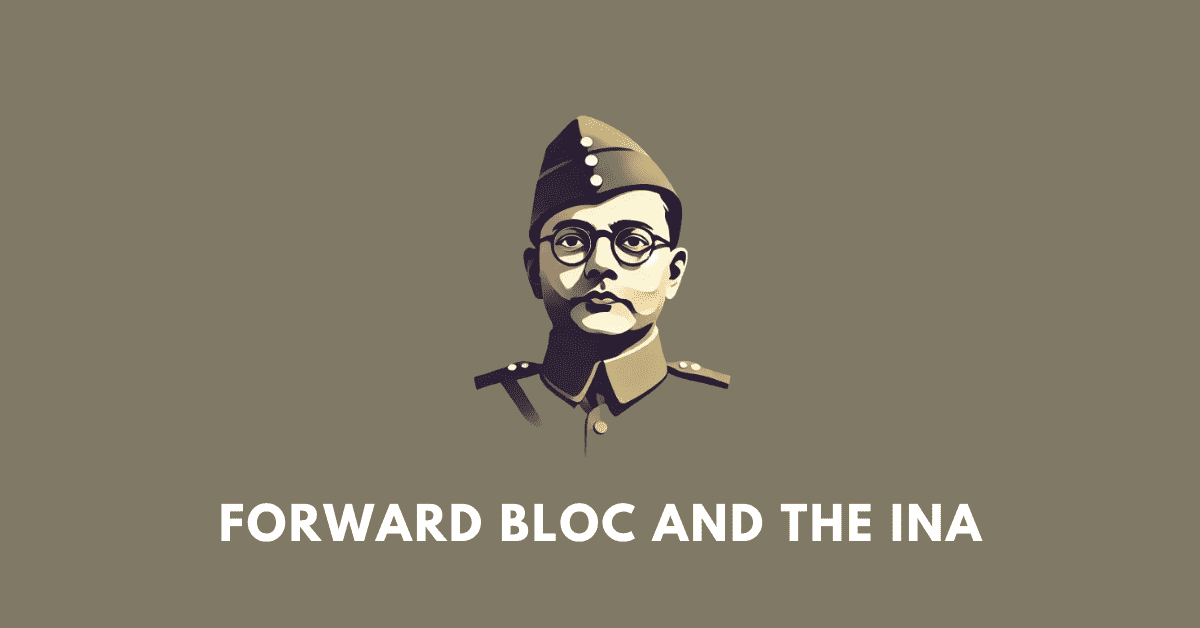Formation of All India Forward Bloc: A Radical Approach to Indian Independence
History Indian HistoryPosted by NewAdmin on 2025-02-11 08:53:50 |
Share: Facebook | Twitter | Whatsapp | Linkedin Visits: 39

The All India Forward Bloc was formed on May 3, 1939, by Subhas Chandra Bose as a breakaway faction of the Indian National Congress. Bose, who had been a prominent leader of the Congress and had served as its president in 1938, grew increasingly dissatisfied with the leadership of Mahatma Gandhi and Jawaharlal Nehru, particularly their approach towards the struggle for India's independence. After resigning from the presidency of the Congress due to differences over strategy and direction, Bose sought to create a new political platform that would rally the masses for a more aggressive and revolutionary movement for independence.
The formation of the All India Forward Bloc was a response to the perceived weaknesses in the Congress's policies at the time, especially its policy of non-cooperation and gradual progress towards self-rule. Bose was critical of the Congress leadership's willingness to work with the British government in limited reforms while India was still under colonial rule. He advocated for a more radical and immediate approach to achieving independence, emphasizing the need for direct action, mass mobilization, and an uncompromising stance against British imperialism.
The Forward Bloc aimed to bring together all sections of society, including the working class, peasants, and the youth, in a united struggle for India's independence. It sought to promote socialist ideals, advocating for social and economic reforms alongside political independence. The Bloc's platform was rooted in the belief that true independence would not be achieved without addressing issues of poverty, inequality, and the exploitation of the Indian masses by colonial rulers.
Under Bose's leadership, the Forward Bloc grew rapidly, particularly in Bengal, where Bose had considerable support. It also attracted attention for its focus on youth and worker mobilization. However, the British government did not view the Bloc favorably, and Bose's radical nationalism led to his arrest and eventual imprisonment. Despite these challenges, the Forward Bloc played a crucial role in pushing the boundaries of the Indian independence movement, advocating for more direct and militant action against British rule.
The All India Forward Bloc remained an important political force in the years leading up to India's independence, particularly in the 1940s, as it continued to challenge the Congress's approach. Although it never gained the mass support that the Congress had, its formation marked a significant moment in the struggle for independence, reflecting the growing discontent with moderate approaches and the desire for a more revolutionary path to freedom.
Search
Categories
Recent News
- Dreamliner Radar Glitch Grounds Delhi-Bound Flight
- Deputy CM Pawan Kalyan's State Tour: Prioritising People's Welfare
- Indian IT Giants Stumble: Anthropic's AI Launch Triggers Global Sell-off
- T20 Champions Battle: India Faces South Africa in Warm-Up Clash
- Championing Farmers: Andhra Pradesh's Innovative Agricultural Revolution
- Andhra Pradesh Land Acquisition Sparks Livelihood Crisis
- CBSE Empowers Teachers with Practical Skill Education
- Renowned Poet's Daughter Accuses Husband of Abuse and Child Confinement